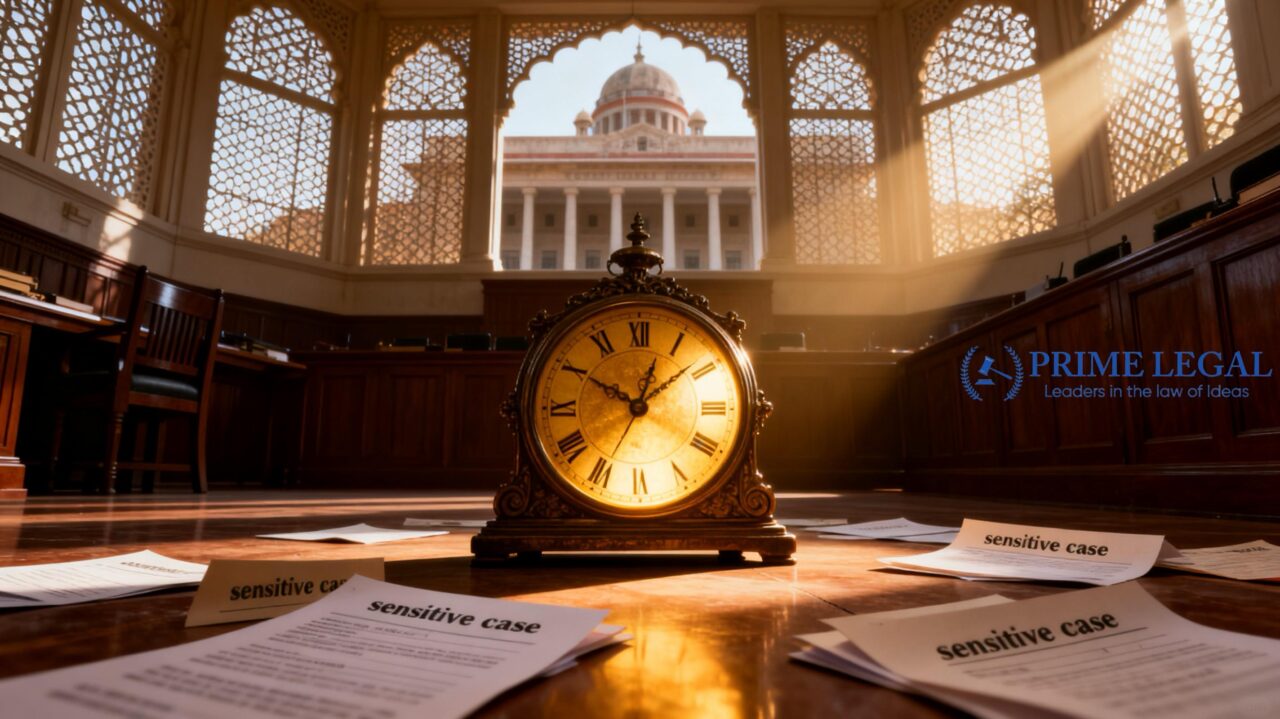Introduction
In a historic measure to ensure speedy justice and restore people’s trust in the criminal justice system, the Supreme Court of India has issued binding directions which apply nationwide requiring all trial courts in sensitive matters to hear matters on a day-to-day basis. In an attempt to revive the old-fashioned process of continuous trials, the directives aim to counter lengthy delays, shorten the period of adjournments, and see to it that serious cases, that are in public interest, are concluded efficiently.
Background
The topic of delayed criminal trials, especially in matters with far-ranging social or political implications, has been a longstanding issue in the Indian court process. Cases of such sensitive nature – whether a sexual assault prosecution, communal violence, or crimes involving government officials – are often subject to delays and extended timeframes, resulting in witnesses tired of waiting, a risk of evidence tampering, or victims losing faith in the process altogether. As to this persistent issue over the years, even the Supreme Court noted that Indian courts did once have the practice of ensuring examination of witnesses, once commenced, would continue on the next day(s) until those witnesses presented to give evidence had all been examined, unless good grounds were given to delay the process. The practice of succeeding day examinations has now generally lapsed into excessive delays or delays due to lack of court resources.
Key Points
Guidelines provided by the Supreme Court of India in this context:
- Statutory Foundation: Section 346 of the Bharatiya Nagarik Suraksha Sanhita, 2023, provides that the evidence has to be recorded on day-to-day basis and only under exceptional circumstances the recording can be deferred.
- The Court emphasized that this statutory requirement is directly related to the right to a speedy trial, as envisaged in Article 21 of the Constitution of India.
- Circulars to be Issued by Chief Justices: The Chief Justice of all High Courts are to issue administrative circulars ensuring trial courts comply with the following items:
- Once witness testimony commences, it shall continue from day-to-day unless the court, for reasons stated in the record, directs otherwise.
- Adjournments therefore or counsel convenience shall only be granted for the rarest circumstances such as death or serious illness; reasons will be recorded in writing.
- Where the accused or defence counsel is seeking to delay, courts may award exemplary costs, appoint amicus curiae, or even revoke bail with notice.
- Constructive working days for witness testimony will be scheduled in advance, ensuring the attendance of the attorney and witness and should compel the appearance of the prosecution’s witness when timely summons is issued.
- Coverage of Sensitive Cases: The guidelines clearly applied to all sensitive matters, specifically cases with regard to sexual offences, communal violence or any matter of great public interest. For these types of cases, the requirement is completion of the trial within two months of the filing of the charge sheet.
Recent Developments
The Supreme Court’s directions arose in The Central Bureau of Investigation v. Mir Usman @ Ara @ Mir Usman Ali 2025 LiveLaw (SC) 949, which referred to troubling delays in the trials of some serious crime cases. The bench, consisting of Justices JB Pardiwala and KV Viswanathan, noted their dissatisfaction with the numerous adjournments issued in the case of rape in a post-poll violence incident, and stated, the delay like this “threatens the very fabric of rule of law.” The Supreme Court has directed all Chief Justices to appoint committees at the High Court level, the Court needs urgent feedback and doable plans on implementation of that direction, thus holding the judiciary institutionally accountable for using trial practices with an immediate restoration and strict adherence to trial practices.
Conclusion
With its binding guidelines, the Supreme Court takes a critical step towards systemic reform to ensure that sensitive criminal trials are conducted without undue delay, and in accordance with legislative and constitutional principles. By mandating it as a day-to-day hearing, laying down guidelines around the adjournments of proceedings and by taking into account the rights of accused persons, the Court has tried to revive faith of people in courts – to deliver justice in time – an elementary principle of rule of law. If its directive is implemented successfully, this Court order has the potential to greatly enhance the efficiency, integrity and fairness of India’s criminal justice system.
“PRIME LEGAL is a full-service law firm that has won a National Award and has more than 20 years of experience in an array of sectors and practice areas. Prime legal falls into the category of best law firm, best lawyer, best family lawyer, best divorce lawyer, best divorce law firm, best criminal lawyer, best criminal law firm, best consumer lawyer, best civil lawyer.”
WRITTEN BY Stuti Vineet


